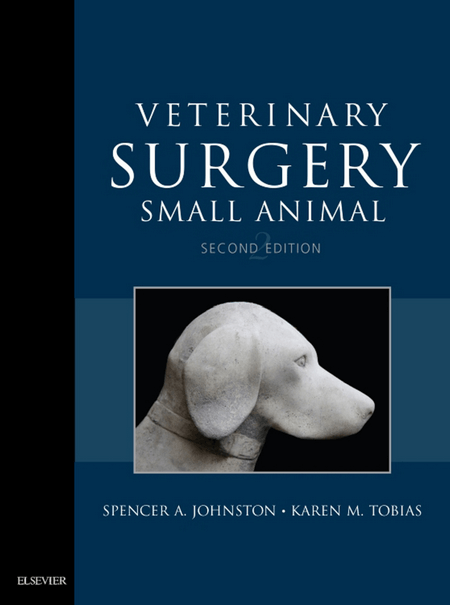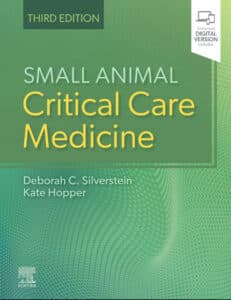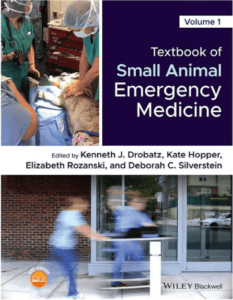
By Karen M. Tobias and Spencer A. Johnston
This Book Focus on the “how” and “why” of medical/surgical conditions — the critical issues that lead to successful outcomes for your patients — with Veterinary Surgery: Small Animal, Second Edition. This two-volume full-color resource offers an authoritative, comprehensive review of disease processes, a thorough evaluation of basic clinical science information, and in-depth discussion of advanced surgeries. With an updated Expert Consult website you can access anytime and detailed coverage of surgical procedures, it is the definitive reference for surgical specialists, practicing veterinarians, and residents.
Veterinary Surgery Small Animal Tobias PDF Features:
- Expert Consult website offers access to the entire text online, plus references linked to original abstracts on PubMed.
- Comprehensive coverage includes surgical biology, surgical methods and perioperative care, neurosurgery, and orthopedics in Volume One, and all soft tissue surgery organized by body system in Volume Two.
- Extensive references to published studies available on Expert Consult show the factual basis for the material.
- Strong blend of clinical and basic science information facilitates a clear understanding of clinical issues surrounding operative situations.
- Highly recognized contributing authors create chapters from their own experience and knowledge base, providing the most authoritative, current information available.
- Coverage of anatomy, physiology, and pathophysiology in chapters on specific organs includes information critical to operative procedures and patient management.
- In-depth chapters on anesthesia, surgical oncology, tumors of the spine, and musculoskeletal neoplasia provide valuable resources for practicing surgeons, especially in the area of cancer treatment.
- Preoperative considerations and surgical implications for surgical procedures help surgeons make decisions about treatment approaches.

This Book is Available For Premium Members Only













![Ettinger’s Textbook of Veterinary Internal Medicine 9th Edition [PDF+Videos] Ettinger’s Textbook of Veterinary Internal Medicine 9th Edition [True PDF+Videos]](https://www.vet-ebooks.com/wp-content/uploads/2024/10/ettingers-textbook-of-veterinary-internal-medicine-9th-edition-100x70.jpg)
![Textbook of Veterinary Diagnostic Radiology 8th Edition [PDF+Videos+Quizzes] Thrall’s Textbook of Veterinary Diagnostic Radiology, 8th edition PDF](https://www.vet-ebooks.com/wp-content/uploads/2019/09/textbook-of-veterinary-diagnostic-radiology-8th-edition-100x70.jpg)







